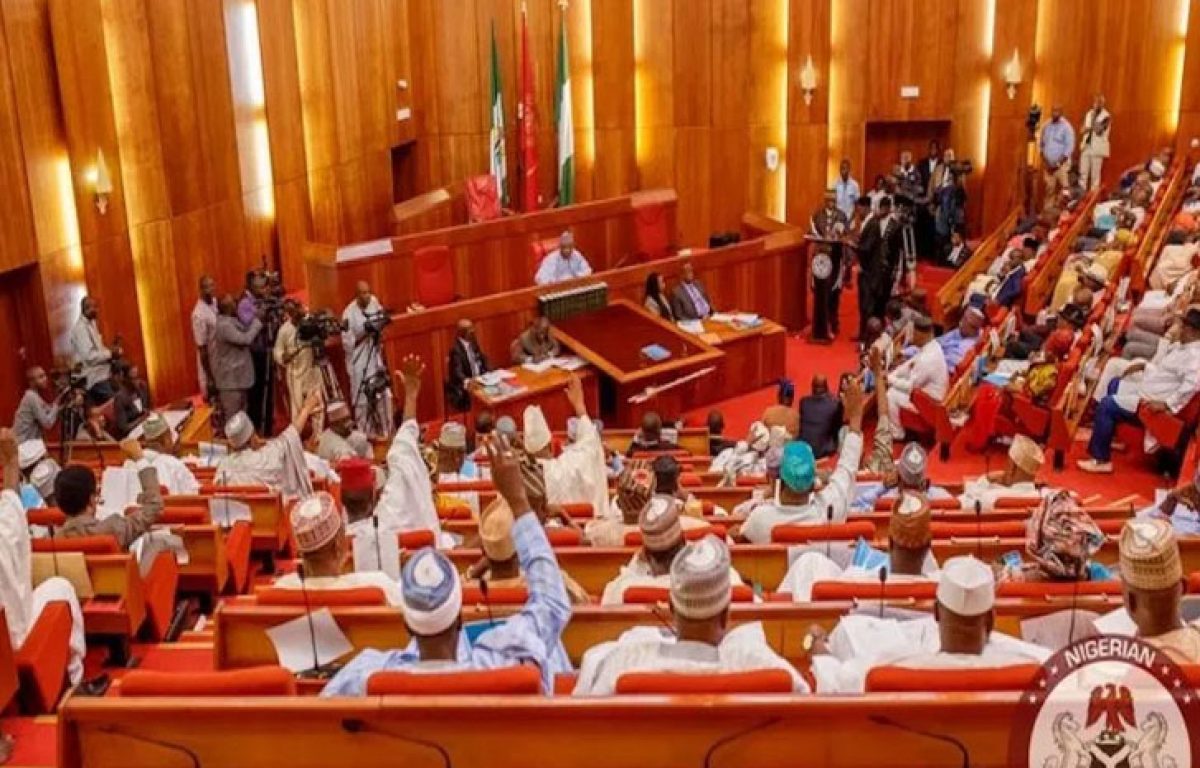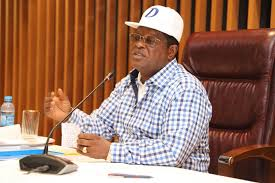Business
FG Moves to fast-track SDGs Implementation at all levels: Stakeholders Urged to Redouble Efforts

By Abdulateeef Bamgbose
As Nigeria continues regional consultations on the 2025 Voluntary National Review (VNR), the Senior Special Assistant to the President on SDGs (SSAP-SDGs), Princess Adejoke Orelope-Adefulire, OFR, has emphasised the need for stakeholders to intensify efforts towards the achievement of the SDGs by 2030.
She stated this in her Keynote Address, delivered on her behalf by Dr Bala Yunusa, mni, Senior Technical Adviser, at the North-East Regional Consultation in Gombe as part of Nigeria’s VNR preparation for the High-Level Political Forum in New York in July 2025. The SSAP-SDGs noted that world leaders established the High-Level Political Forum (HLPF) on Sustainable Development through the United Nations Economic and Social Council (ECOSOC) as a follow up and review mechanism for the 2030 Agenda for sustainable development. The VNRs serve as the cornerstone of this review process. Nigeria is currently undertaking its third VNR, engaging stakeholders across the six geopolitical zones to assess implementation progress, challenges and prospects.
In a statement by her Special Assistant on Media and Strategic Communication, Desmond Utomwen, the SSAP-SDGs stressed the need to reverse the trend and fast-track progress on all the SDGs. She noted that global progress on the SDGs is mixed, with Nigeria not exempted. Citing the 2024 United Nations Sustainable Development Goals Report, she stated that “Lack of progress towards the SDGs is universal, but developing countries and the world’s poorest people bear the brunt. That currently only 17 percent of SDG targets are on track, nearly half show minimal or moderate progress, while over a third have stalled or regressed.” At the national level, dwindling financial resources, the COVID-19 pandemic, and persistent insecurity have combined to slow-down Nigeria’s progress towards achieving the SDGs.
Princess Orelope-Adefulire emphasised that the SDGs cannot be achieved through isolated programmes but must be carefully integrated into national and sub-national policies and development plans. Robust Monitoring, Evaluation, and Reporting (MER), such as the SDGs Progress reporting and the VNR, are essential. She underscored the need for collaboration across the public and private sectors, the UN Development System, the donor community, academia, and civil society to ensure that no one is left behind.
While referencing the “Pact for the Future,” adopted during the 79th Session of the United Nations General Assembly (UNGA) in September, she noted that through “Pact”, world leaders have reaffirmed their commitment to take “bold, ambitious, accelerated, just, and transformative actions to fast-track the achievement of the SDGs.” Quoting the UN Secretary-General António Guterres as calling for “Massive investment and more effective partnerships are needed to drive critical transitions across food, energy, digital connectivity, and more, unlocking progress across the Goals. The 2024 Summit of the Future provides a vital opportunity, paving the way for further breakthroughs at the Financing for Development Conference and World Social Summit in 2025.”
Princess Orelope-Adefulire commended institutional members of the Multi-Stakeholder Core Working Group for Nigeria’s 2025 VNR for their dedication in organising and guiding the entire VNR process. “I appreciate and commend members of the Core Working Group from relevant MDAs, the UN Development System, the Private Sector Advisory Group, the Civil Society Strategy Group, and academia. Your commitment is highly valued. The consulting team for this VNR is equally appreciated,” she concluded.
Business
Senate Committee Commends Tinubu on Launch of National Halal Economy Strategy to Tap $7.7trn Global Market*

The Senate Committee on Finance has commended President Bola Ahmed Tinubu for launching Nigeria’s National Halal Economy Strategy, describing it as a bold and strategic move to position the country within the lucrative global halal market, estimated at $7.7 trillion.
In a statement signed by its Chairman, the committee praised the initiative as timely and aligned with international best practices. Several countries—including the United Kingdom, Canada, Australia, Malaysia, Indonesia, Saudi Arabia, the United Arab Emirates, Turkey, Brazil, Thailand, and Singapore—have successfully used halal frameworks to boost manufacturing, agricultural exports, financial markets, and foreign investment.
The committee highlighted Nigeria’s strong advantages for success in this space, including its vast agricultural resources, large domestic market, youthful population, growing manufacturing sector, and expanding services industry.
It noted that the strategy fits seamlessly into the Tinubu administration’s broader economic reforms, such as boosting non-oil revenue, diversifying exports, creating jobs, supporting small and medium enterprises (SMEs), and increasing foreign exchange earnings.
President Tinubu, represented by Vice President Kashim Shettima, officially unveiled the strategy on Thursday, February 6, 2026, at the Presidential Villa in Abuja.
The framework, developed in collaboration with Saudi Arabia’s Halal Products Development Company (HPDC) following a bilateral agreement signed in February 2025 at the Makkah Halal Forum, aims to enhance quality standards, certification processes, and competitiveness across sectors like food, pharmaceuticals, cosmetics, tourism, and ethical finance.
The committee described the strategy as inclusive, market-driven, and globally oriented, while fully respecting Nigeria’s diverse and pluralistic society.
It is projected to contribute significantly to the economy, with estimates suggesting it could add around $1.5 billion to Nigeria’s GDP by 2027 and unlock billions more in domestic value over the coming decade through expanded exports and investment.
The Senate Committee on Finance pledged its full legislative support, oversight, and cooperation to ensure smooth implementation, regulatory clarity, and long-term fiscal sustainability in the national interest.
“This decisive step reinforces Nigeria’s readiness to adopt proven international models, unlock new economic frontiers, and establish itself as a competitive player in the evolving global economy,” the statement concluded.
Business
Ex-Naval Chief Named in ₦100m Property Transaction Dispute
A property transaction dispute has emerged involving Zoe New Dawn Nigeria Limited and a former Chief of Naval Staff, following claims by the company’s chairman, Engr. Dr. Stephen Achema Akpa, that a ₦100 million payment made for land was not followed by a transfer of ownership.

According to Akpa, the payment was made in connection with a land transaction reportedly facilitated by the former naval chief. He alleged that despite documented payments, the land in question was neither transferred to the company nor was the money refunded.
Akpa said Zoe New Dawn Nigeria Limited possesses transaction records and related documents which, he claims, support its position in the dispute. He added that the company has initiated steps to seek redress through appropriate legal channels.
The matter has drawn attention due to the profile of the parties involved, particularly against the backdrop of recurring disputes linked to land ownership and property transactions in Nigeria’s real estate sector.
Industry observers note that unresolved land transactions remain a common source of litigation, often arising from disagreements over title documentation, intermediaries, and contractual obligations.
Zoe New Dawn Nigeria Limited stated that it intends to pursue the matter through lawful means to determine liability and recover any funds deemed outstanding.
As of press time, no official response had been issued by the former Chief of Naval Staff regarding the allegations. The dispute has not yet been confirmed as the subject of any court proceedings.
Business
Umahi Inspects Lekki Corridor’s 7th Axial Road Project, Expresses Confidence in CHEC

Minister of Works Senator Dave Umahi over the weekend inspected the progress of the 7th Axial Road project in the Lekki Corridor of Lagos.
The project, located behind the Dangote Refinery, is a crucial cargo handling route for the Lekki Deepwater Port and connects the Lekki Corridor with the Sagamu route.
The Minister expressed confidence in China Harbour Engineering Company Limited (CHEC), the project’s contractor, citing its successful delivery of the Lekki Deepwater Port and high-quality progress on the Makurdi-Enugu road reconstruction and expansion project. Umahi instructed that the roadbed filling work for Project LOT1 be completed by the end of April and directed the project team to accelerate resource input and tangible works to meet the deadline.
The 7th Axial Highway is expected to synergize with key infrastructure projects like the Coastal Road, Dangote Road, and Lekki Port, creating a comprehensive transportation hub model and boosting Nigeria’s port economy and industrial corridor. Umahi emphasized the need for environmental protection agencies to ensure efficient construction and steady progress while maintaining ecological safety.
A representative of CHEC who spoke during the inspection stated that the company would maintain a high level of resource input, implement the Minister’s directives, and coordinate safety, quality, and environmental protection to ensure the project’s timely and high-quality completion in other to unluck its port relief and regional economic benefits.
-

 Uncategorized5 years ago
Uncategorized5 years agoFG, states urged to harness flooding for ranching, others with technology – Agbaje
-

 Headlines10 years ago
Headlines10 years agoBreaking: EFCC seals Borno House of Assembly, as Hon members take to their heels
-

 News12 years ago
News12 years agoNigeria Security Operatives Stage Manhunt For Homosexual Perpetrator
-

 News9 years ago
News9 years agoHow 21-year-old Girl fled community over accusation of lesbianism
-

 News10 years ago
News10 years agoYobe Gov Moves Against Deputy
-

 Opinion7 years ago
Opinion7 years ago7 signs she has friend zoned you
-
Technology4 years ago
Online job placement company headhunts women
-

 Headlines10 years ago
Headlines10 years agoBorno Dep Gov Abducts Another Church Leader





